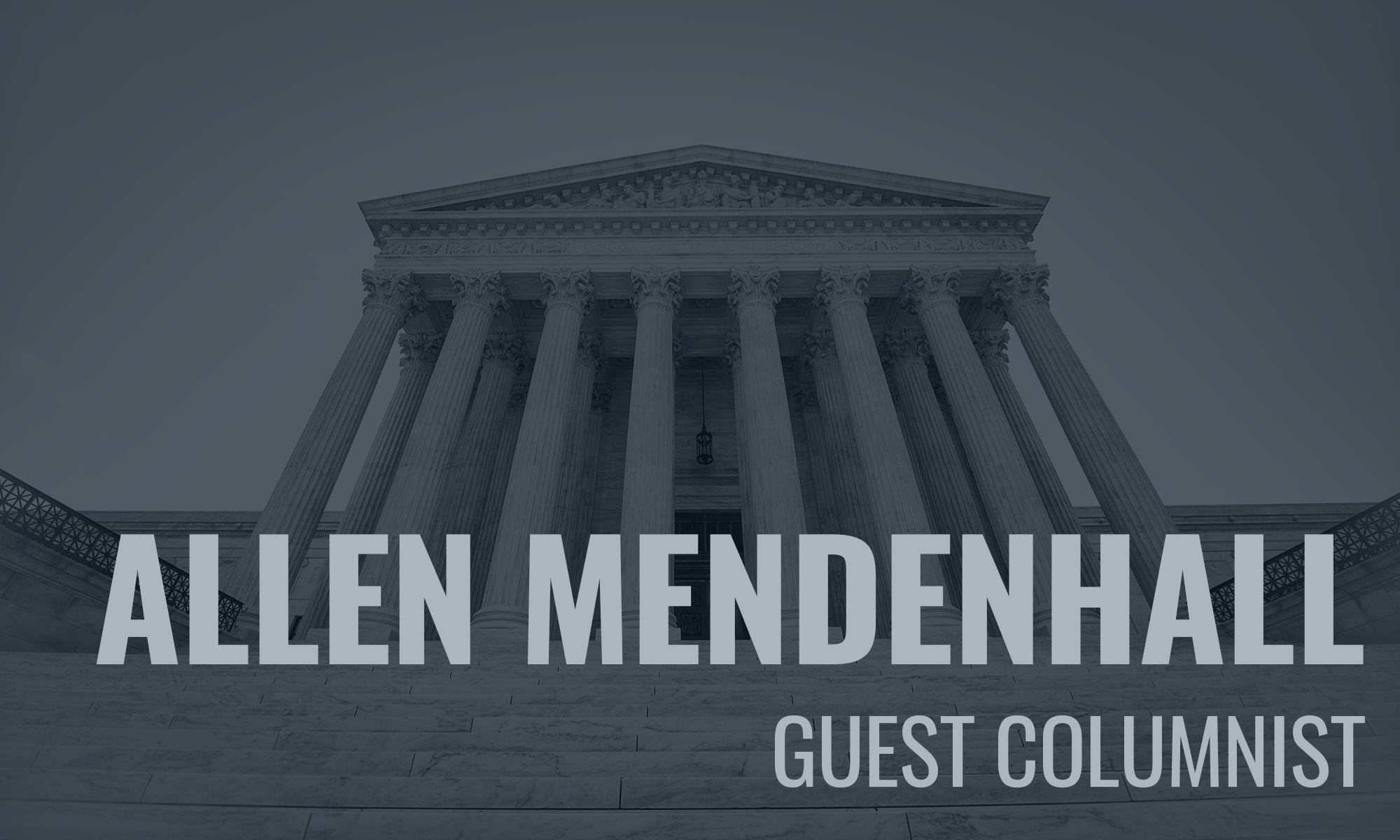It’s official: President Trump has nominated Brett Kavanaugh to succeed Justice Anthony Kennedy as an associate justice on the U.S. Supreme Court.
Kavanaugh has served on the D.C. Circuit since 2006. A graduate of Yale and Yale Law, he clerked for the man he’s been chosen to replace, and for legal legend Alex Kozinski. He twice worked for Ken Starr, first as a fellow in the U.S. Solicitor General’s Office and later in the Office of Independent Counsel. He’s known in D.C. circles and among Republicans and will be difficult to portray as an ideologue or extremist.
Republican presidents have struggled with Supreme Court nominations. Kennedy became a justice only after President Reagan’s failed nomination of Robert Bork, followed by Douglas Ginsburg’s admission of past drug use that resulted in his withdrawal from consideration for a seat on the High Court.
Dwight D. Eisenhower nominated some of the most liberal justices in the Court’s history, Earl Warren and William J. Brennan. Richard Nixon nominated Justice Harry Blackman, who authored the opinion in Roe v. Wade (1973). Gerald Ford nominated John Paul Stevens, who has, in retirement, advocated repealing the Second Amendment. George H. W. Bush nominated David Souter, and George W. Bush’s selection of John Roberts, seemingly impeccable at the time, has disappointed many conservatives in light of cases like National Federation of Independent Business v. Sebelius (2012), which alleged, among other things, that Obamacare’s individual mandate to purchase health insurance was a “tax,” not a “penalty.”
Kennedy himself has cast votes in seminal cases with the left wing of the Court. That’s what makes the present nomination so momentous: replacing Antonin Scalia with Gorsuch preserved a conservative voting bloc, with Kennedy serving as the swing vote, whereas Kavanaugh could tip the balance: five conservatives (Roberts, Clarence Thomas, Samuel Alito, Neil Gorsuch, and Kavanaugh) against four liberals (Ruth Bader Ginsburg, Stephen Breyer, Sonia Sotomayor, and Elena Kagan).
Senate Republicans will move quickly on Kavanaugh’s nomination in hopes of making him a sitting justice by October, when the Supreme Court’s next term commences, and before the 2018 midterm elections take place. Judicial Crisis Network has already announced a major ad campaign in states like Indiana and West Virginia with competitive midterm races.
Gorsuch was nominated on January 30, 2017, confirmed by the Senate on April 7, 2017, and took office on April 17, 2017. Two months and 17 days passed from when he was nominated to when he took office. If Kavanaugh’s confirmation spans the same period, he will take office on September 23, 2018—just meeting the Republican’s desired deadline.
Six key senators, however, could disrupt the process: Susan Collins (Republican, Maine) and Lisa Murkowski (Republican, Alaska), moderates who are generally pro-choice; Joe Donnelly (Democrat, Indiana) and Dean Heller (Republican, Nevada), who are campaigning for reelection in “purple” swing states this fall; Doug Jones (Democrat, Alabama), who must cast conservative votes if he wishes to retain his seat beyond 2021; and Joe Manchin (Democrat, West Virginia), who is up against the reliably conservative Patrick Morrisey, the former Attorney General of West Virginia, in the 2018 midterm election.
Each of these senators except Jones, who has never voted on a Supreme Court nominee, voted “yea” to confirm Gorsuch. Two Democratic senators in conservative states, Claire McCaskill of Missouri and Jon Tester of Montana, voted “nay” on Gorsuch and will likely do so again on Kavanaugh.
Only 12 nominees, historically, have been rejected by the Senate, and just four since the turn of the twentieth century. The odds are thus in Kavanaugh’s favor, despite the rancorous political climate and threats of Democratic stonewalling. Last year conservatives worried that Gorsuch wouldn’t gain support among moderates, but he was confirmed with a 54-45 vote after Democratic senators, mostly for show, attempted to filibuster his nomination.
In the following weeks we’ll be immersed in contentious, constructive debates over Kavanaugh’s extensive record, but it could be that the biggest battles over the judiciary are yet to come. The two oldest justices on the Supreme Court are Stephen Breyer, who turns 80 next month, and Ruth Bader Ginsburg, who is 85. Either could retire during President Trump’s first term. If they don’t, the Supreme Court will become the hottest political issue going into the 2020 presidential election—and many elections to come.



















































